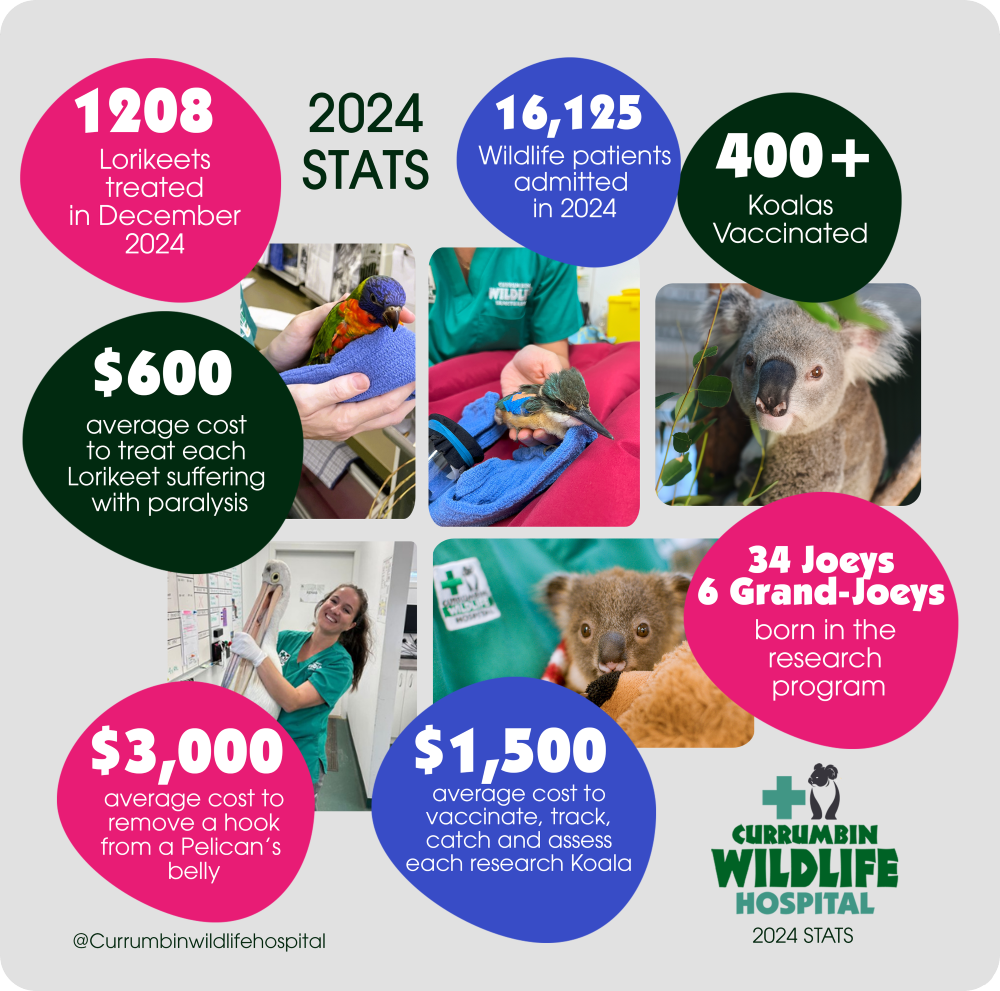A Hospital at Bursting Point: Currumbin Wildlife Hospital Treats Over 16,000 Patients in Record-Breaking 2024
The stats are in - Currumbin Wildlife Hospital has marked its busiest year on record, admitting an astounding 16,125 wildlife patients in 2024, an increase of over 2,000 cases compared to 2023.
December broke the record for the most patients admitted in a single month by a staggering 700 cases, with over 1,200 Lorikeets treated that month alone and the summer season not yet over, there is an unprecedented demand on the hospital’s resources.
Why wildlife admissions are increasing
Dr. Michael Pyne OAM, Senior Veterinarian at Currumbin Wildlife Hospital describes the pressure: “This year has been astronomical. We’re seeing a surge in wildlife admissions, especially Rainbow Lorikeets and Flying Foxes. It’s a testament to both the fragility of our native species and the vital role we play in their survival.”
The growing number of patients highlights alarming trends in wildlife health. Paralysis in Lorikeets and Bats is a growing concern, yet much remains unknown about its causes. Dr. Pyne emphasises the urgent need for more research, “every lorikeet with paralysis costs around $600 to treat, and treatment can take four weeks,” he said. "Without research, we’re only addressing the symptoms and not the cause.”
"Without research, we’re only addressing the symptoms and not the cause.”
- Dr Michael Pyne OAM
How Koalas are saved from a deadly disease
Koalas also remain a priority for Currumbin Wildlife Hospital. In 2024, veterinary staff and researchers hit a milestone 400 Koalas now vaccinated against deadly chlamydia as part of a ground-breaking joint research trial with the Queensland University of Technology.
The success of the trial is already evident, with 34 joeys and six “grand-joeys” born among the vaccinated population. Chlamydia can cause infertility in Koalas, so these births are a beacon of hope for a species at risk of becoming locally extinct by 2050.

The cost of saving wildlife
The financial toll of the care being provided by Currumbin Wildlife Hospital is immense. While the average cost to treat a single wildlife patient is $120, complex cases can soar into the thousands. For example, removing a fishing hook from a Pelican’s stomach costs $3,000, and treating a critically ill Koala can exceed $7,000.
Currumbin Wildlife Hospital operates as a not-for-profit charity, offering its services free of charge to the community. With rising patient numbers, sustainable funding is more crucial than ever.
“The wildlife we treat are more than just numbers. They’re individuals with vital roles in our ecosystems,” Dr. Pyne says. “We’re always grateful to the donors, supporters and partners that we have, but we are in need of more ongoing funding to meet this unprecedented demand and continue our mission to treat, rehabilitate, and release our precious native wildlife.”
“The wildlife we treat are more than just numbers. They’re individuals with vital roles in our ecosystems.”
- Dr Michael Pyne OAM
How you can help
Every dollar makes a difference. From treating Lorikeets to funding groundbreaking research, your support helps protect Australia’s wildlife.
